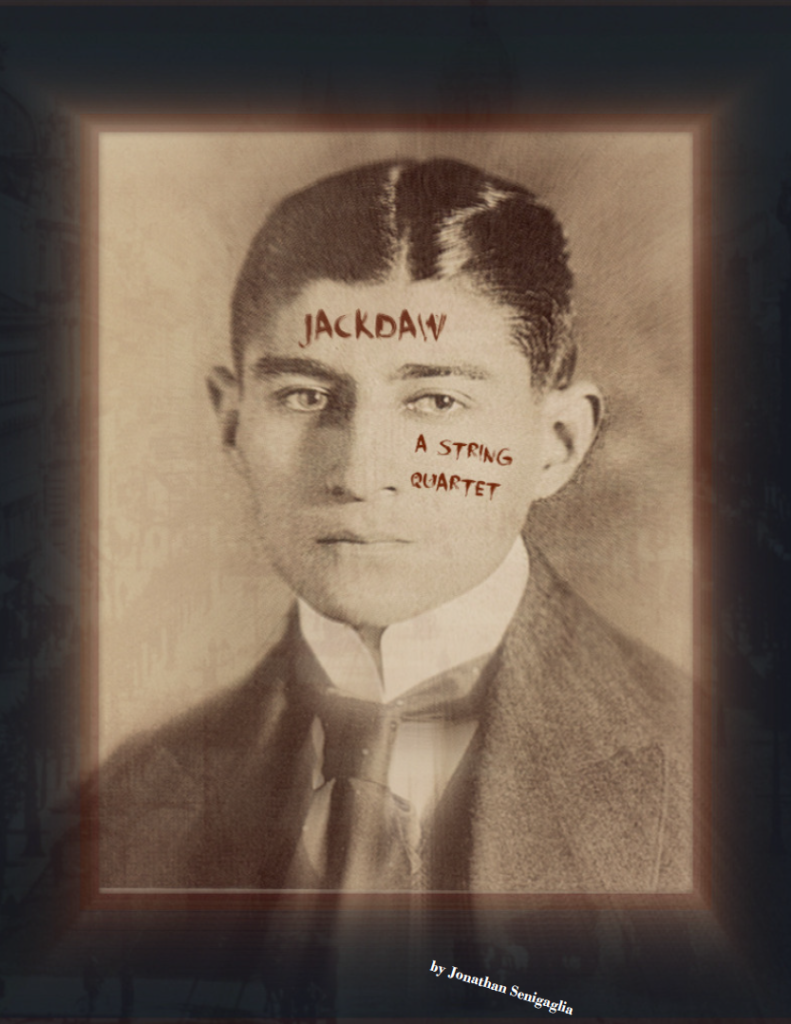
Franz Kafka’s final story is called “The Hunger Artist,” about a man who starves himself in a cage for weeks as a circus attraction (read the story here). However, over time fewer and fewer spectators stop to watch his stunt. The few that even bother to notice him are mostly repulsed, and quickly skitter off to find more tasteful entertainment. The people pass him by in his filthy cage, and eventually everyone forgets he even exists.
Yet the hunger artist just continues to fast anyways, even with nobody watching. He knows he is an artist, but nobody else even knows he’s there. Eventually he finally dies a slow and painful death from starvation; unappreciated and misunderstood even in his final moments. As soon as the man is dead, the circus owner disposes of the corpse with little ceremony. The cage is cleaned, and a young panther is put in the cage, wild and thrashing. A crowd gathers to watch the powerful animal throw itself around the cage, and they are reminded of freedom itself.
This is yet another of Kafka’s stories that appears to be autobiographical. When Kafka himself contracted tuberculosis, his diseased throat became so painful in the end that he could no longer eat. While he was writing this story, Kafka was wasting away as the disease consumed him. Like his famous character, he too died of starvation; unappreciated, misunderstood, and forgotten by a fickle world. The crowds, Kafka believed, want to see passion for life, strength and power, a shining panther slamming against the bars. Nobody has the time or stomach for a sickly artist wasting away in his cage. Kafka was never strong, never a panther, and he fully expected the world to toss his emaciated corpse in a ditch and forget he ever existed. Luckily for us he was wrong (at least about the forgetting part). The artist is appreciated today. Whether Kafka would have found that idea comforting while he starved… it seems unlikely.
In the music, listen for melodies from the previous movements. For example, the violin melody the sister plays in Metamorphosis returns, slowed way down and full of longing and regret. Much of this music expresses longing and regret. Over and over throughout the entire string quartet, the music longs for love and warmth and acceptance. It calls out for them, reaches and reaches, but they always seem to slip away. The love, the warmth, the acceptance were all dreams or memories, or memories of dreams.
We’ve all felt this way, the way this music feels, at one time or another. We reach for a lover who is gone. We reach back in our minds for a father’s smile, for a long-lost friend, for the home we grew up in, for a time when things were simple, for something that welcomes us with open arms and loves us for who we are. But it all becomes blurry, as if viewed through a mist, because we are reaching for memories and dreams and figments of our imagination.
The world can be cold and uncaring. It loves strength and youth. We all must die, and eventually every one of us will be forgotten. In time, we all get swept out of our cages, to be replaced by young panthers. Best to live and love and feel and create art while we have the chance. Best to cherish the memories of everyone we’ve ever loved, of everyone who loved us back. Cherish where we’ve been, what we’ve seen, what we’ve felt, what we’ve achieved and didn’t achieved, what we strived for. Cherish it all, for it is life!
Listen the entire Jackdaw String Quartet here.
